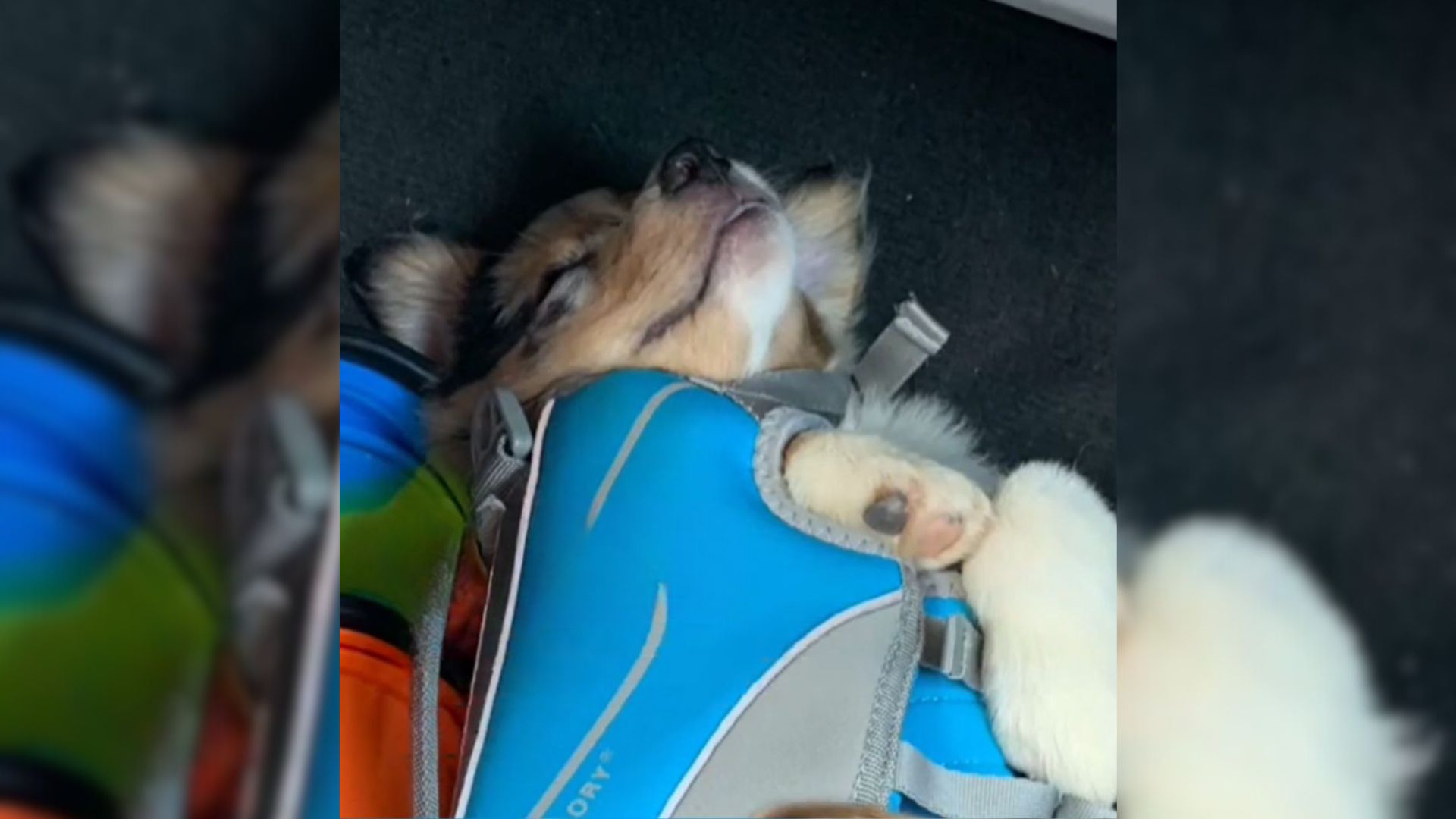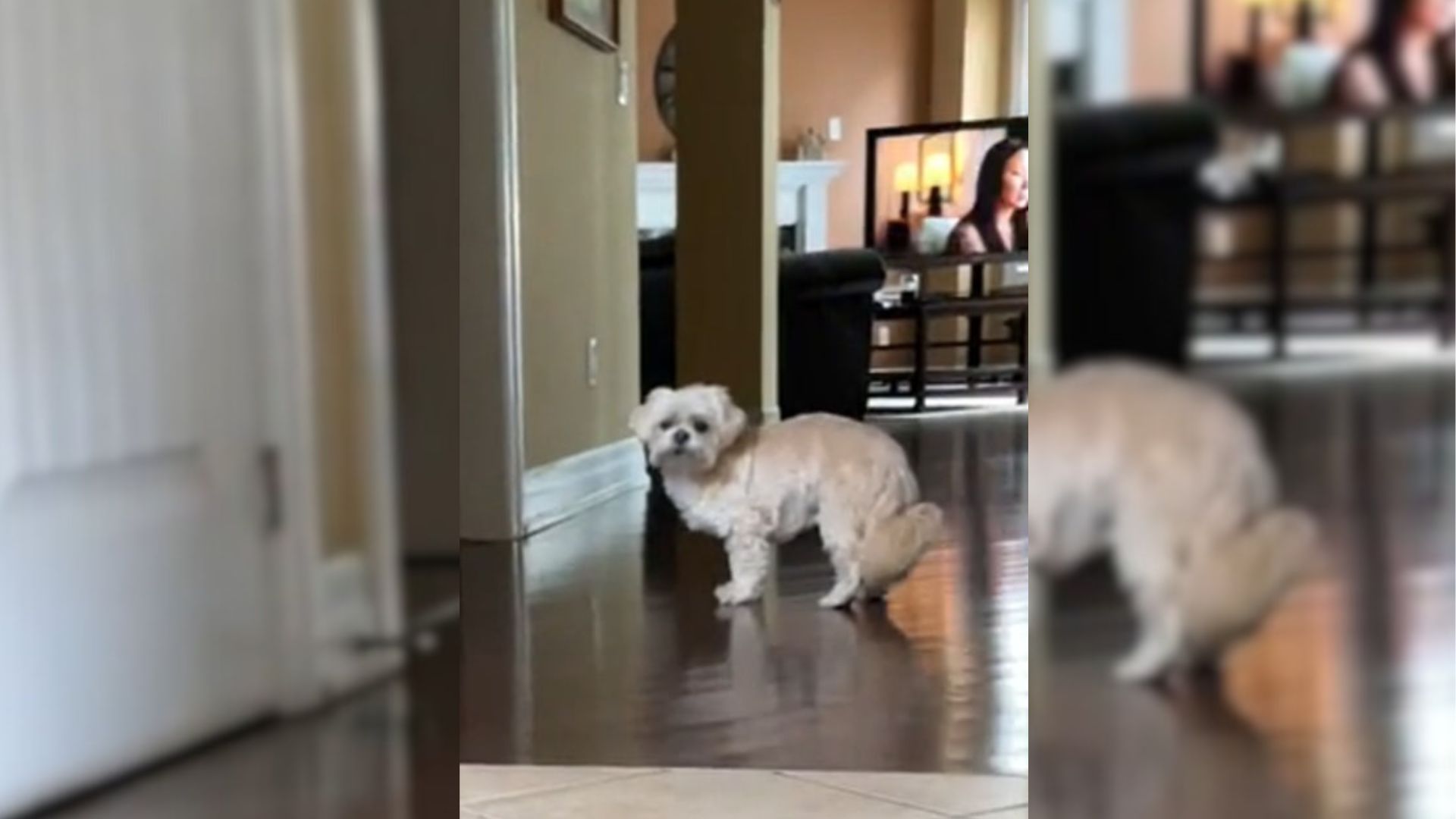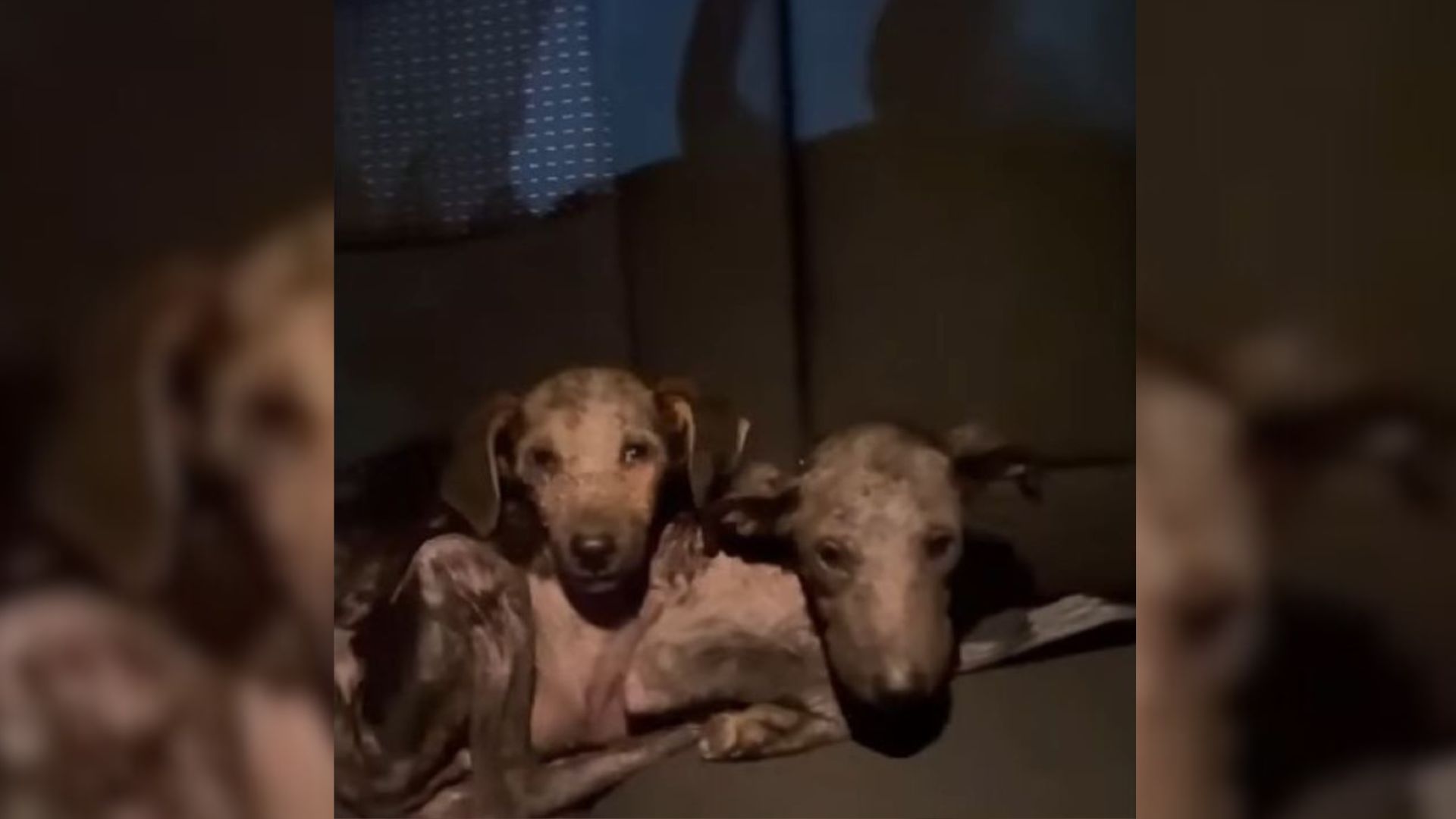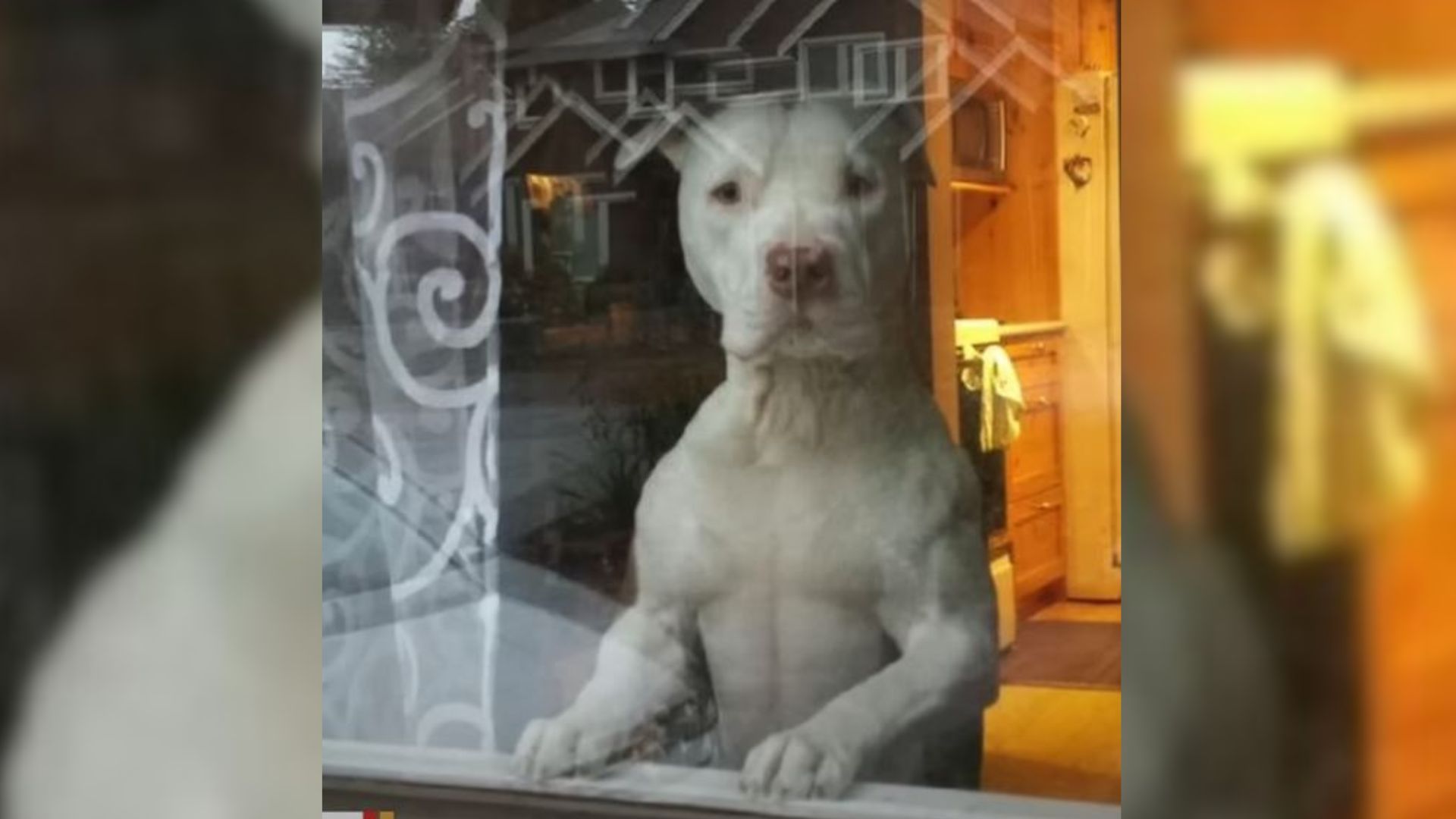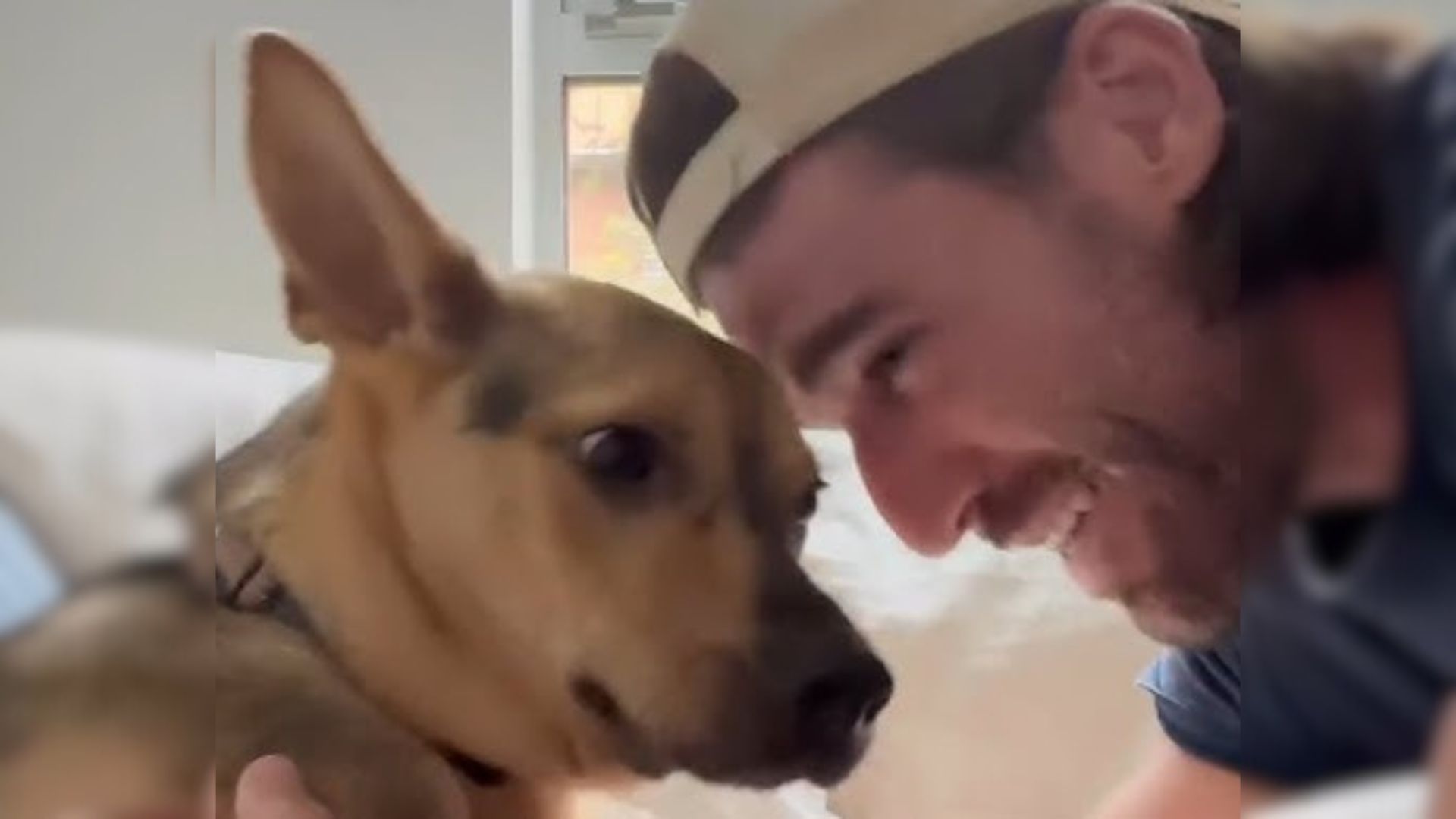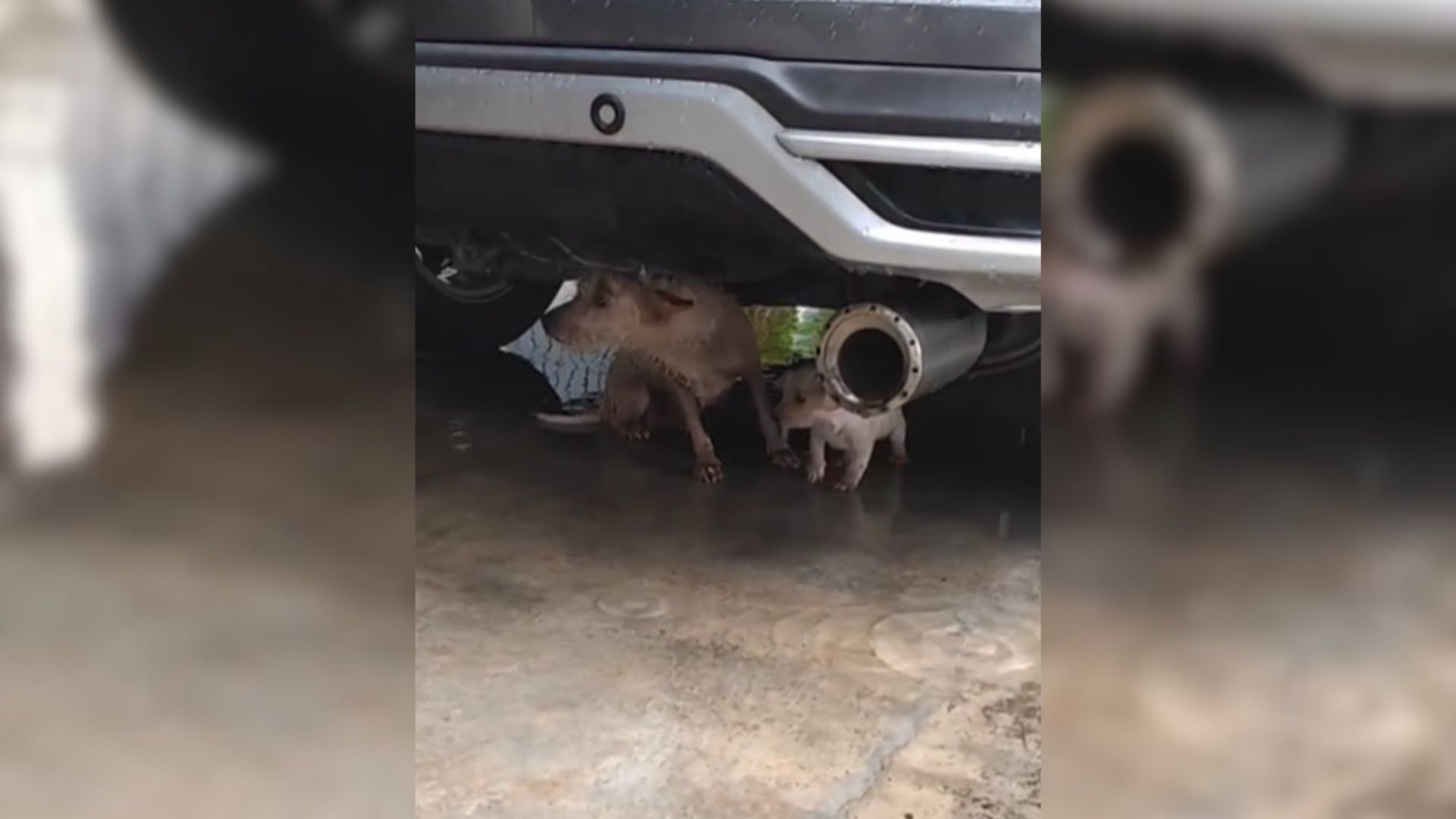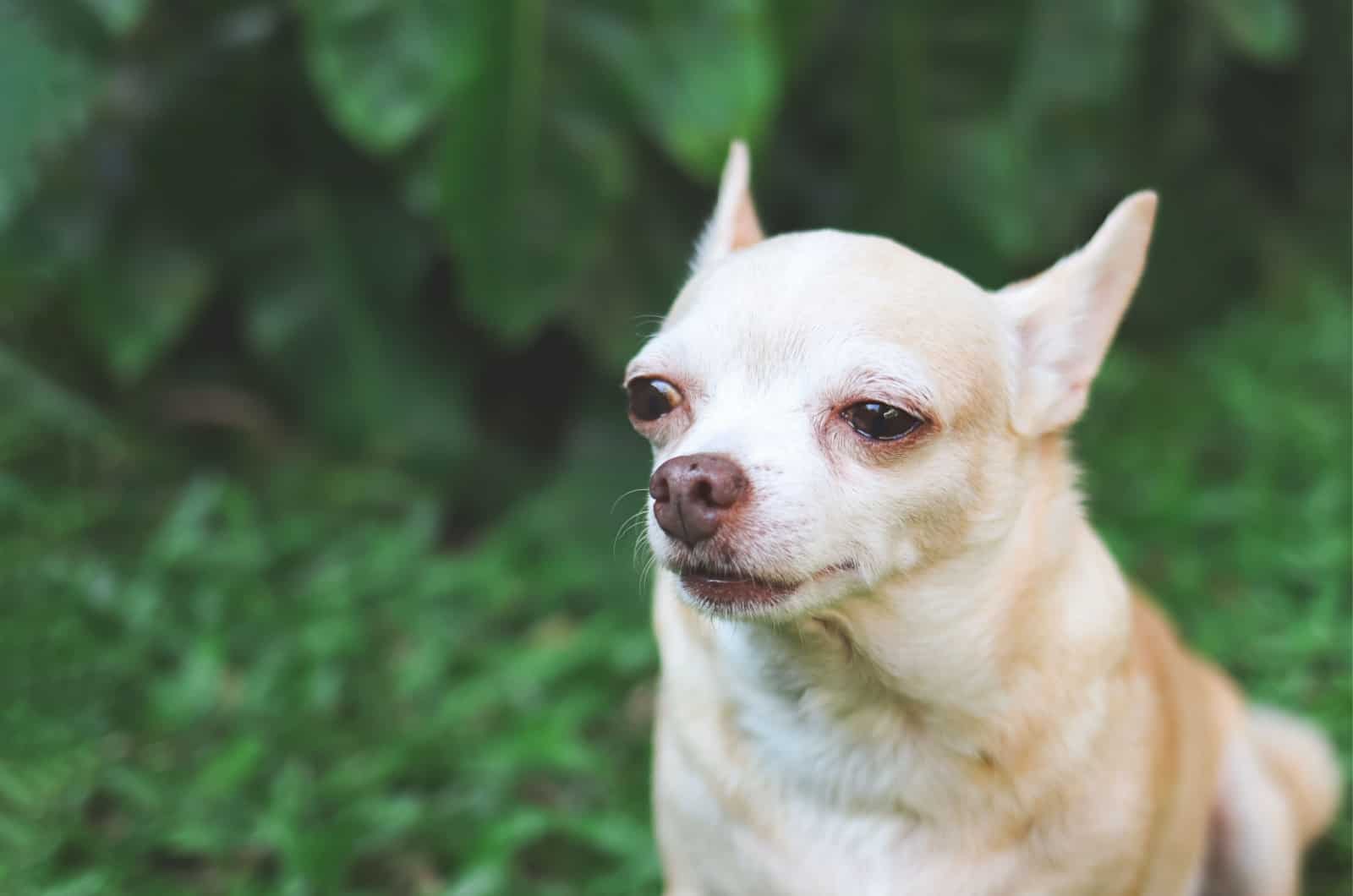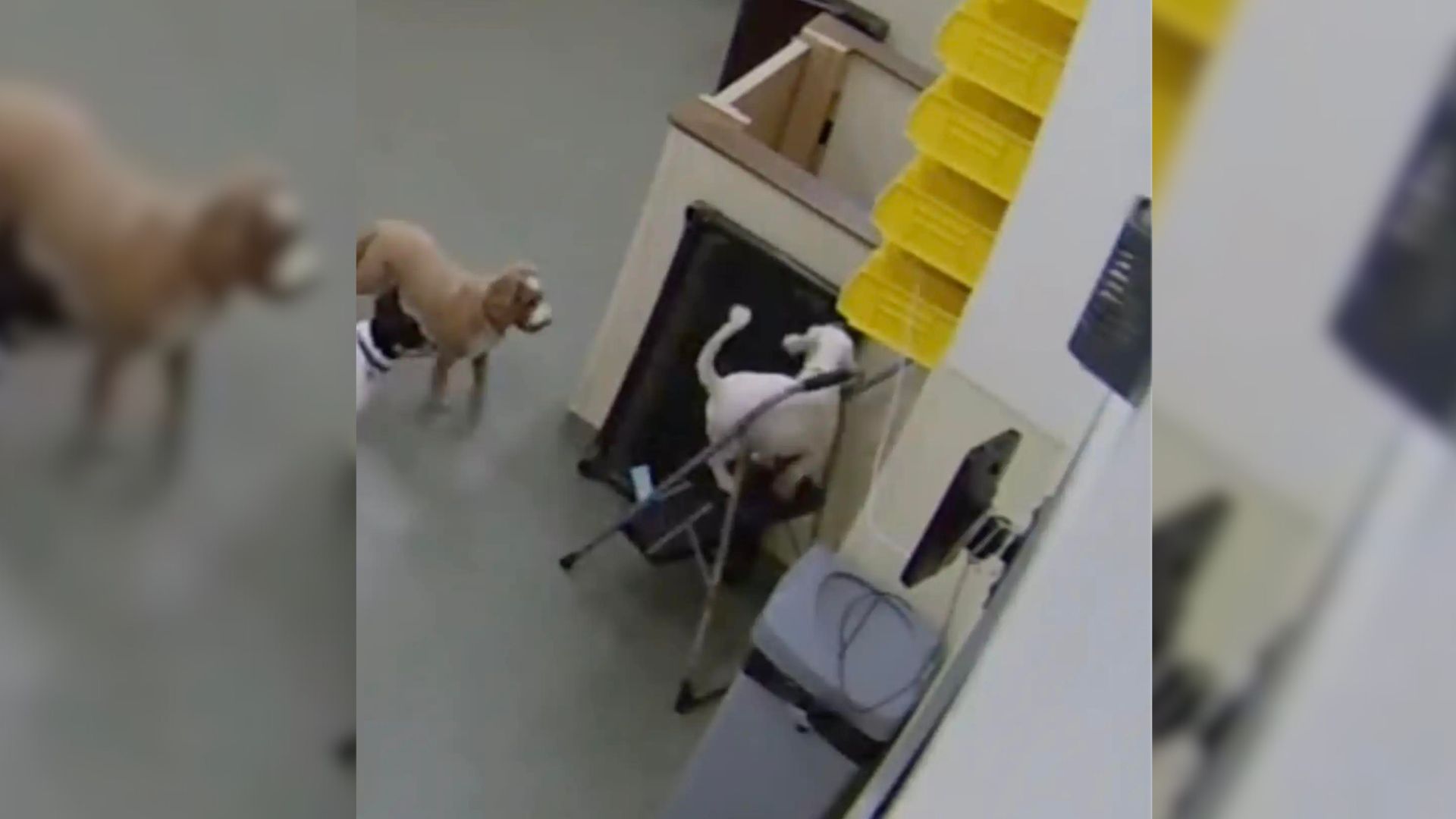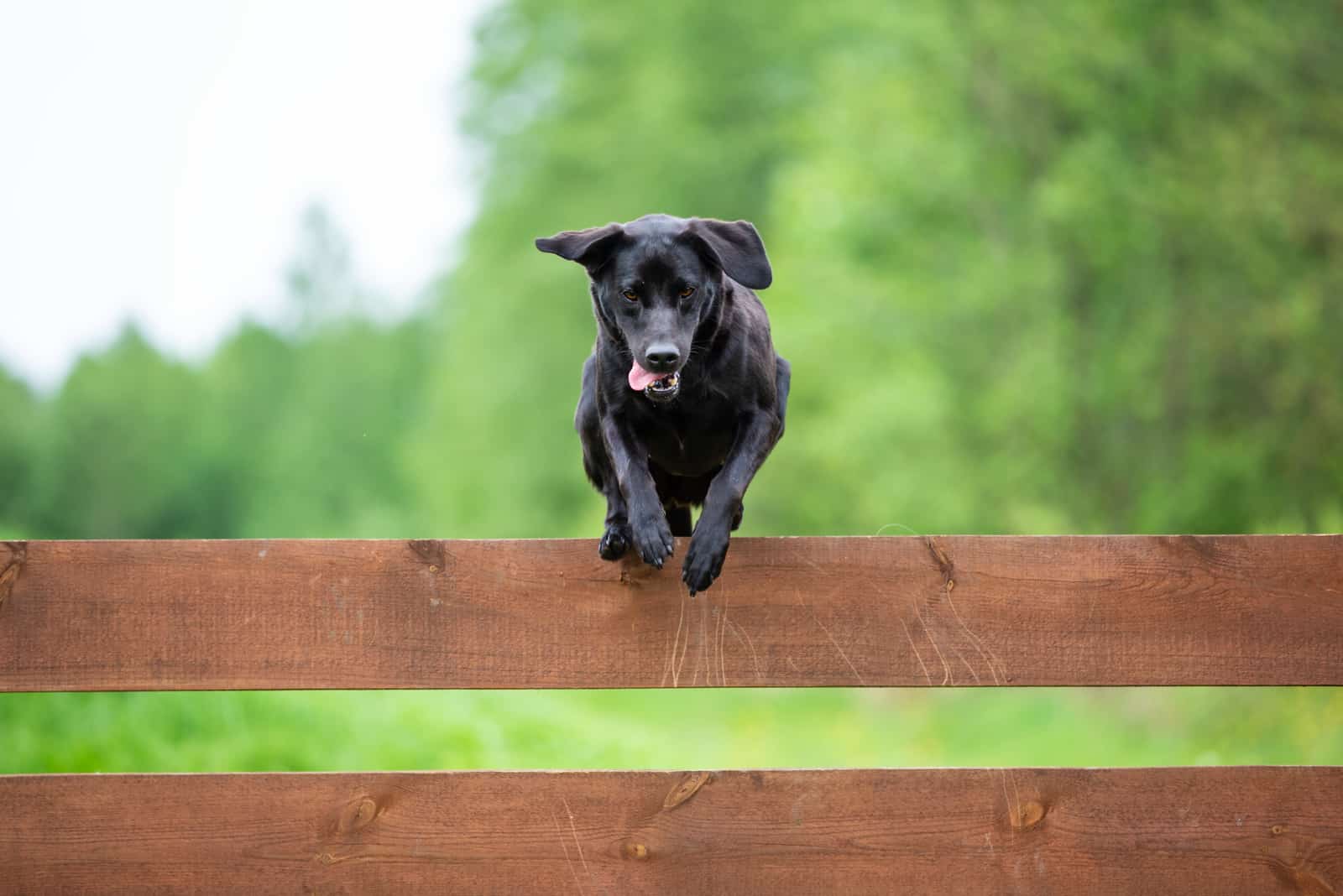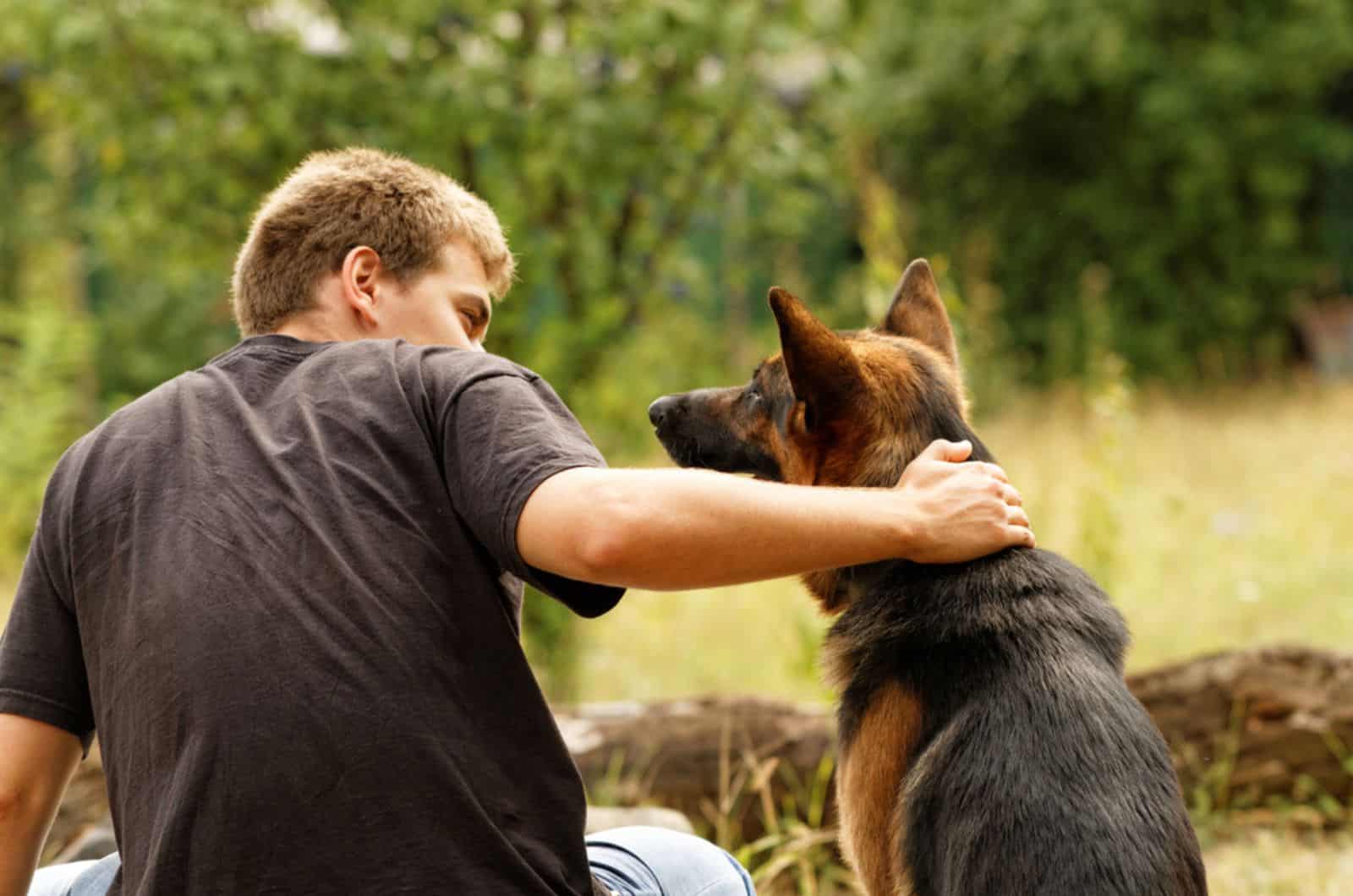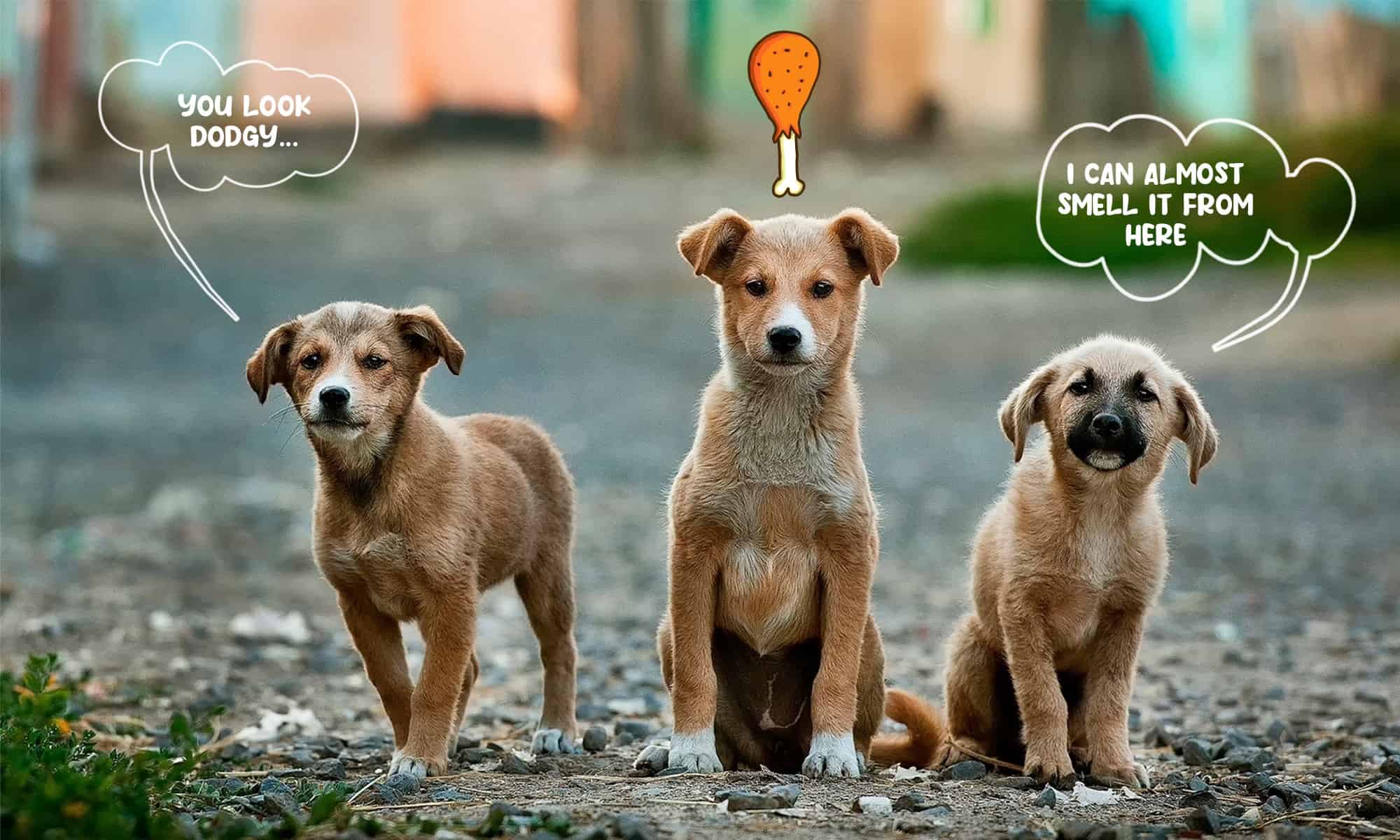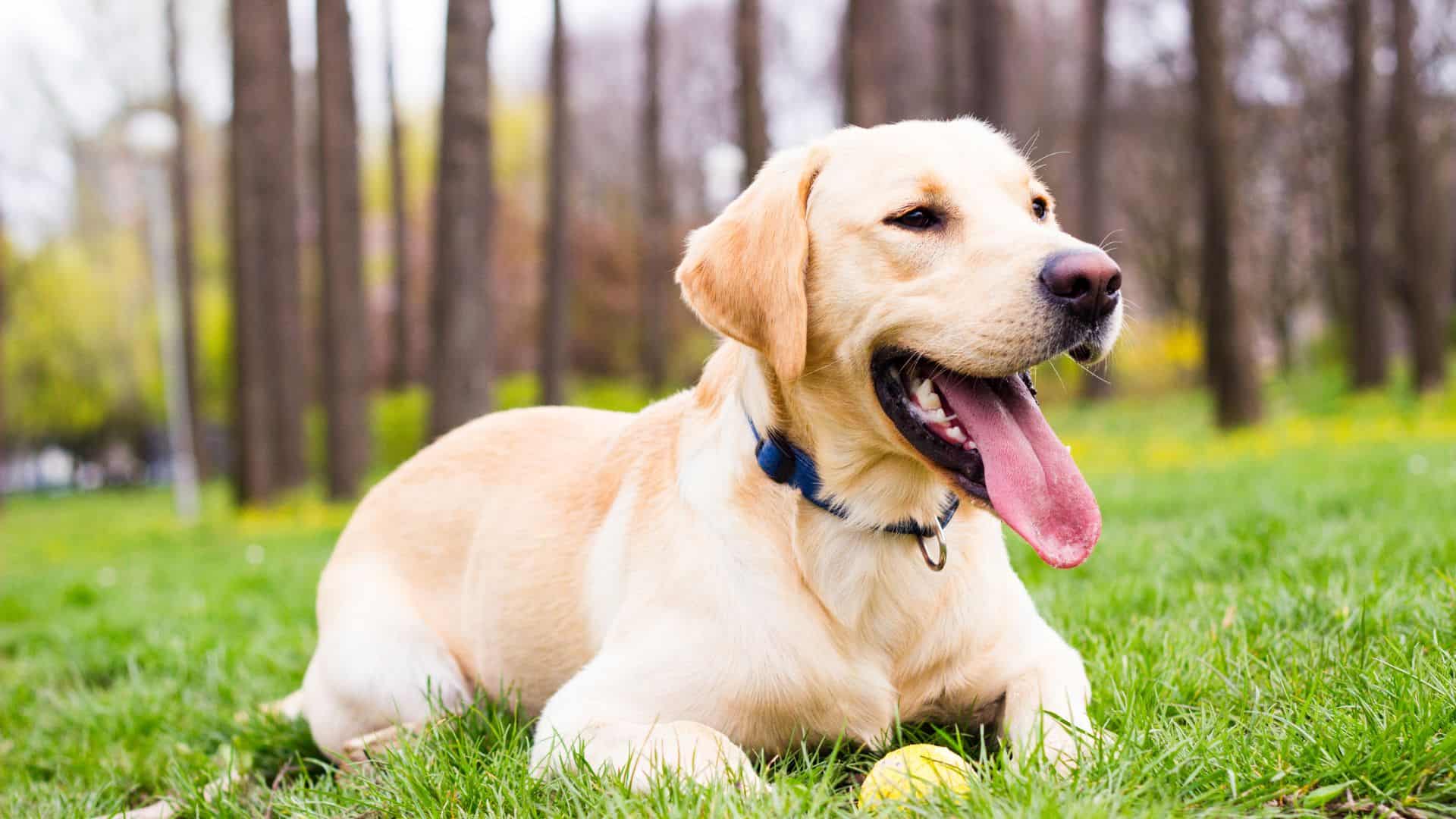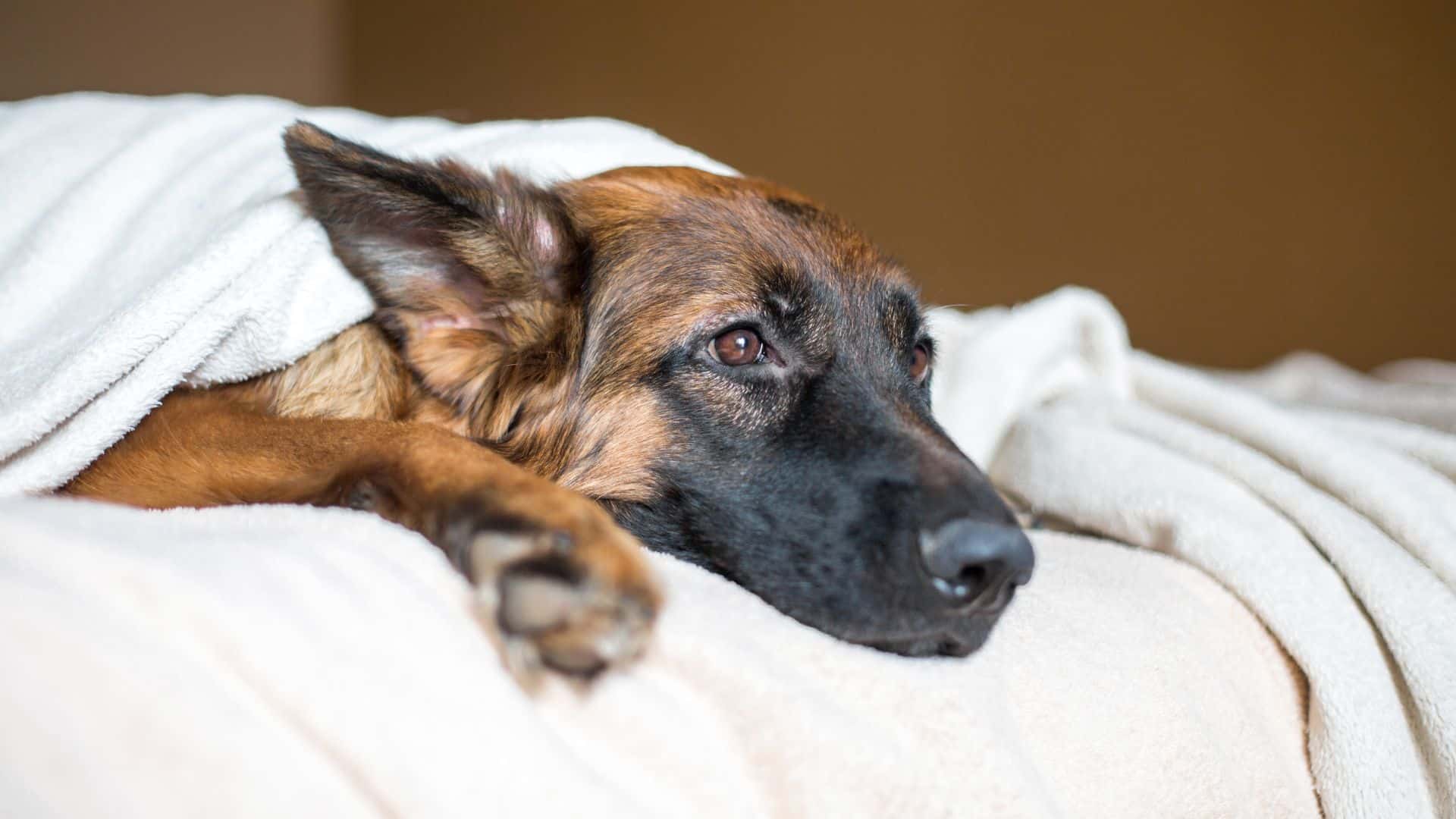Daisy is an adopted German Shepherd Dog that suffered from severe PTSD. Her story is the textbook example that explains the “why is my dog scared of everything” phenomenon, which is why I decided to share our experience with you.
It was the summer of 2015 when we first found Daisy on a hike through the Pennsylvania woods.
She was a lost cause – scared, dehydrated, had a wounded left paw, and not enough energy to run away from us. She had a tag with her name on it. It was right then when we realized that she was abandoned by her owners.
Even though she was extremely scared when my wife and I approached her, she let us slowly pet her on her head and give her some water. It was the moment she looked at us fearfully while she was drinking water when we knew – we had to adopt her.
Why Daisy Was Scared Of Everything
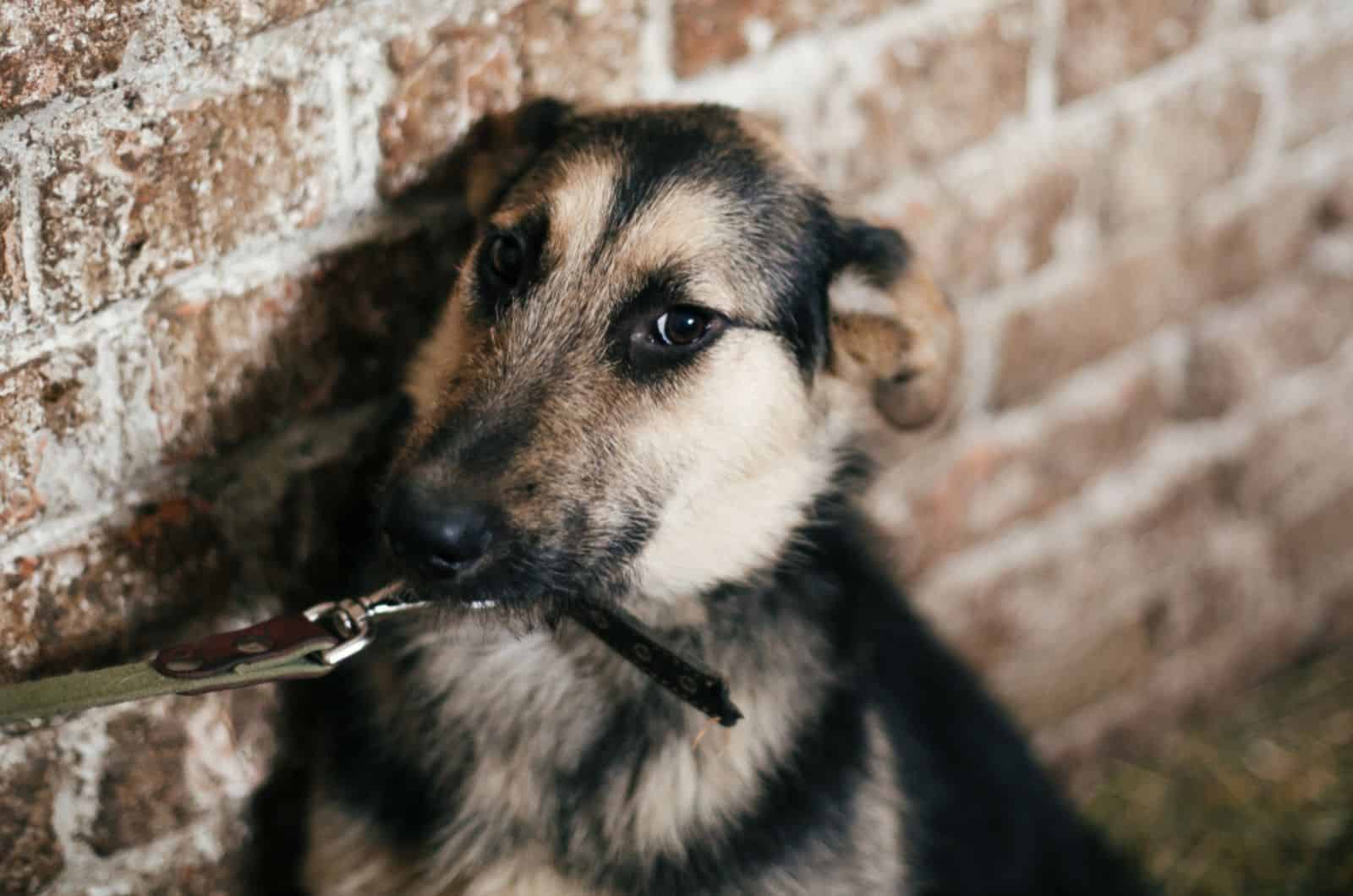
One question has kept us awake for quite some time – why was Daisy scared of everything?
It was two weeks after that hike when my friend, Mark, DVM, subjected Daisy to a medical check up.
Going through her physical and mental condition, he established severe post-traumatic stress disorder and a couple of bruises that were the result of harsh parenting.
That made complete sense as she was constantly hiding under the bed or basically anywhere we could not approach her.
It turned out that Daisy’s PTSD was triggered by several binding traumatic experiences: improper parenting, lack of socialization, and three separate phobias. Here’s how we found out…
Daisy Was Improperly Parented
After careful evaluation of her medical condition, Mark established that the bruises Daisy had on her left paw, back, and snout were the result of harsh parenting.
Apparently, she was constantly and consistently hit by her previous owners, which is why she was scared of any movement in the first place.
She would regularly hunch her back and growl when I was reaching for stuff in her presence or explaining something with my hands, which made me realize that she was traumatized.
Lack Of Socialization
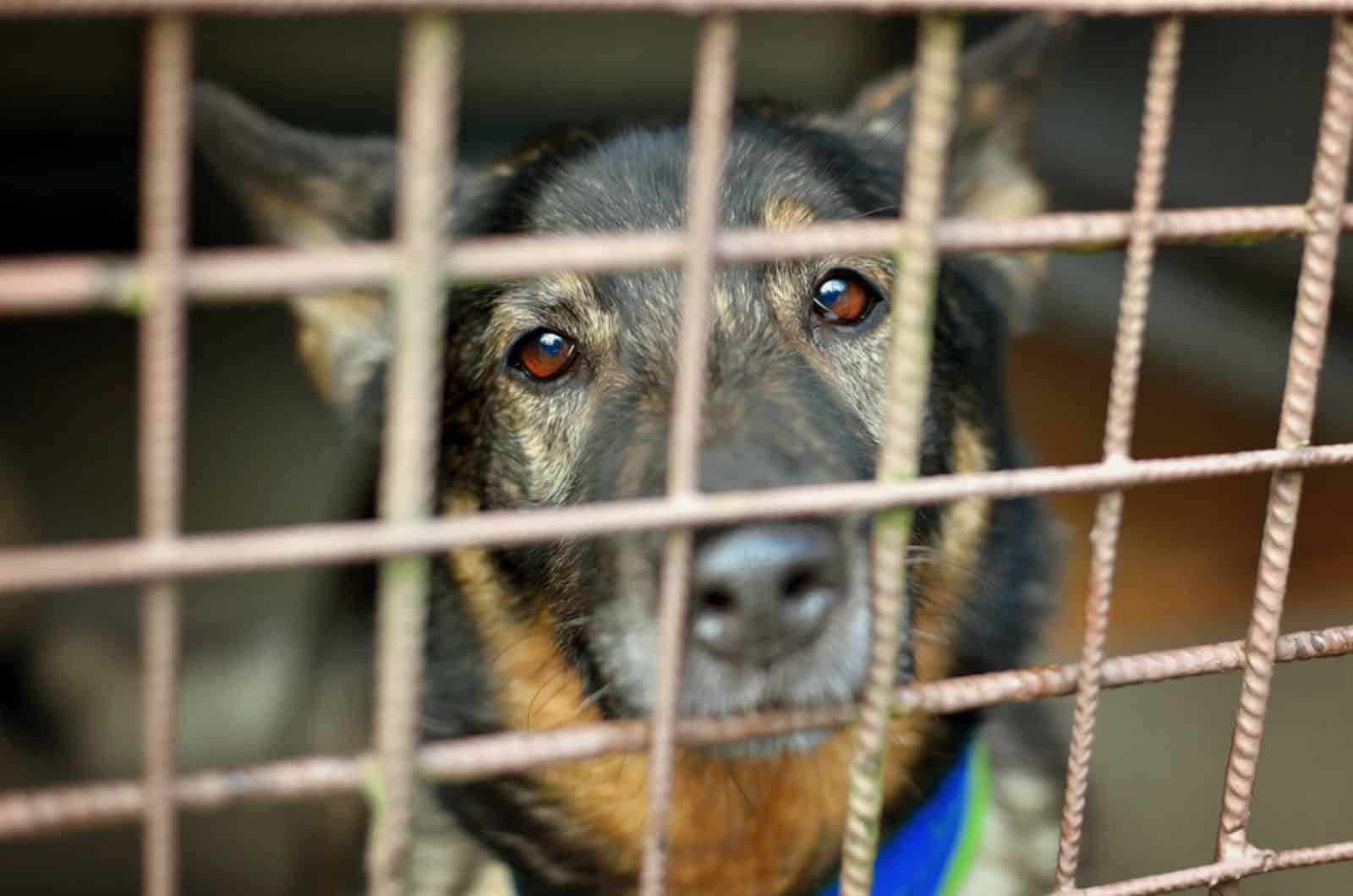
A couple of friends came to our house four weeks after we adopted Daisy. She didn’t respond positively. Quite the opposite – she howled, barked, growled, and kept panting the whole time they were here.
This was another moment of realization – Daisy was lacking socialization!
Even though GSDs are naturally aloof with strangers, and not exactly friendly around people they don’t know, there was something unnatural about her behavior.
It was not a classic watchdog behavior, but an extreme behavioral outburst, which is why we needed to end dinner earlier.
After days of research and many consultations with our dog behaviorist, we realized that this behavioral pattern was not only triggered by lack of socialization, but deep fear of unknown people.
Daisy Had Several Fears And Phobias
It took us a while to understand what particular fears and phobias Daisy had. At first, she was basically scared of everything, even though she didn’t have any real reason. After a while, we understood that this behavioral pattern was deeply triggered in these three phobias…
Fireworks
It was New Year’s Eve when we realized Daisy had firework phobia. Just like most dog breeds, she would howl, hide, and stressfully absorb the noises that were coming from outside.
Throughout Daisy’s training sessions with dog behaviorists, we came to the conclusion that her firework phobia was a trigger for further fear of other things.
Loud Spaces
The other reason why Daisy was scared of everything was rooted in her phobia of loud spaces. That’s right… this girl was extremely afraid of high-pitched, loud noises. Whenever I raised my voice or sang enthusiastically – she would freak out.
The same happened any time we took her on a walk by a waterfall.
Our friend, Mark, explained to us that fear of noises in dogs is actually not that uncommon.
Quite the opposite – many dog breeds have a natural phobia of loud noises, which makes them anxious. In the long run, loud noises can be a major trigger for the ultimate fear of everything.
Big Crowds Of People
As Daisy wasn’t socialized at all, she had this constant problem with being in big crowds of people. That was her third phobia, and the last trigger for her ultimate fear of everything.
Research shows that the best time to socialize your new puppy is between the third and twelfth week of age. This way, puppies develop the needed self-confidence, and get sufficient amounts of social interaction in order to be completely comfortable in big crowds of people.
As she didn’t go through this process during her early age, we had to apply the method of late socialization. It was a slow, painful process, but we succeeded.
Things We Did To Help Her Overcome Fear
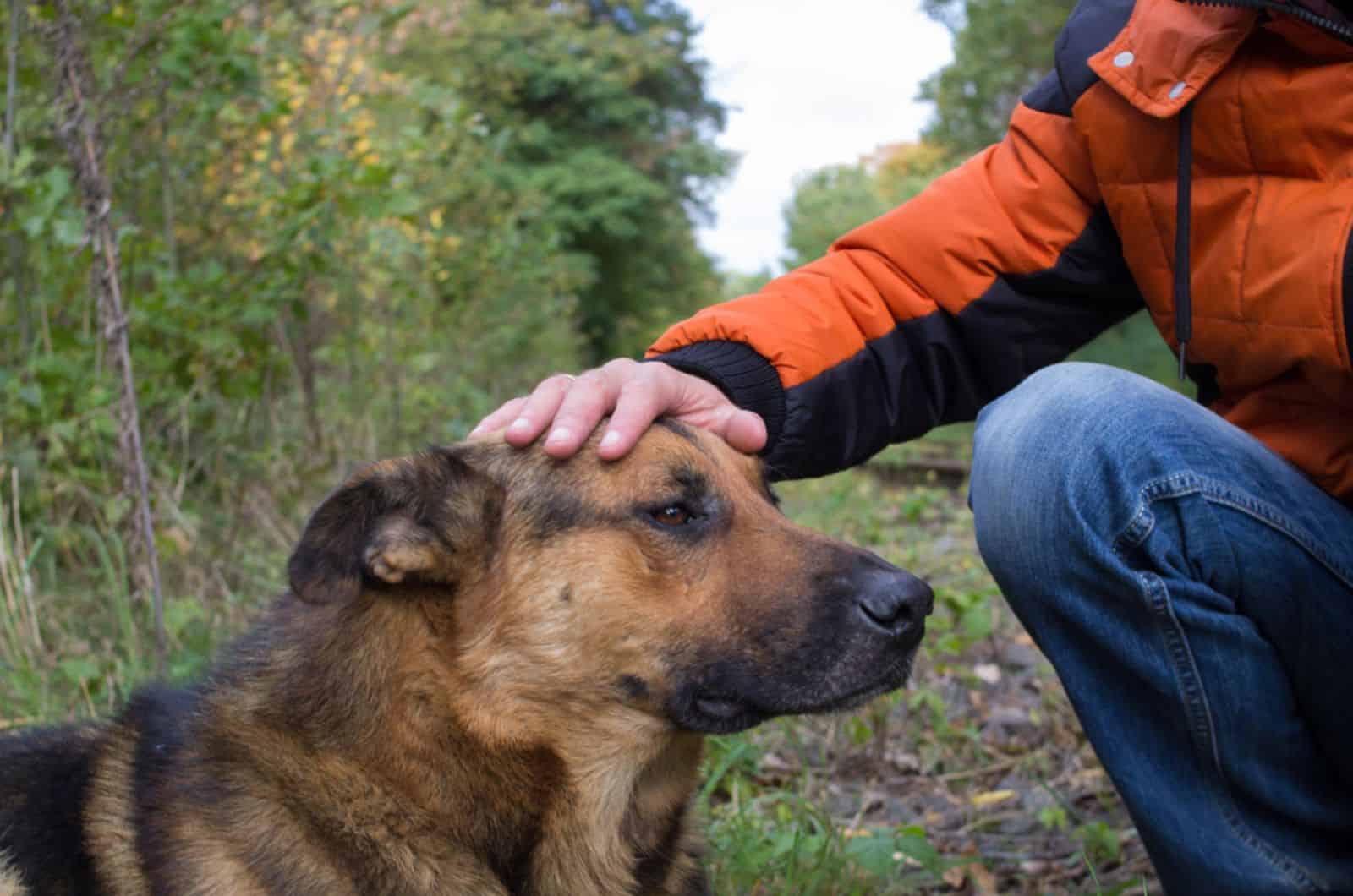
As this cute GSD canine would’ve probably been a lost cause without human touch and care, we knew that something had to be done in order to get Daisy back on track.
There were several crucial things we implemented in the process of her reintegration into a normal world.
Removing The Triggers
The first step towards normalization of Daisy’s behavior was removing the triggers.
We decided not to go where there were big crowds, loud spaces, or at events where there was even the tiniest possibility of fireworks, firecrackers, and other dog-sensitive noises.
This helped us a lot in toning down Daisy’s aggression, barking, and howling. Anyone who’s familiar with German Shepherd barking knows how painful of a sound it is. Well, we somehow managed to reduce it, which consequently led to resolving the problem of fear.
Positive Reinforcement
Our veterinarian, Mark, suggested that we use a technique called positive reinforcement. This training method helped us a lot in reducing Daisy’s stress and boosting her self-confidence.
Petting, praising, encouraging, and rewarding were the four basic techniques we used any time we trained her. Other than that, we always made sure she got enough amusement with interactive toys and an interactive playground that we set up in the back yard.
Over time, she became more friendly and relaxed in our presence. As time went by, she even started enjoying it.
Gradual Socialization
We were aware of the fact that socializing an aggressive dog wasn’t gonna be easy, so we decided to take things slow.
First, we made sure Daisy got to know her home to the very last detail. After we made sure that she felt comfortable and carefree, we introduced her to the rest of the family. This was a good way for her to learn how to distinguish between enemies and friends.
As she regained the needed self-confidence, we decided to introduce her to our friends. Even though she was quite aloof in the beginning, she eventually overcame that fear and started showing a friendly attitude towards people who were common in our home.
Regular Exercise
Mark suggested we exercise Daisy on a daily basis, so we did it. Instead of using orthodox discipline methods throughout exercise, we decided to go for a softer approach.
Light, moderate exercise in the back yard, combined with an hour of daily walks was enough for Daisy to regain her physical strength. Eventually, her bruises healed and her paw became better than it initially was.
This was a great way to reduce stress in our puppy, as well as to create a new routine that will help Daisy overcome her fear easier.
Daisy Today
Today, Daisy is a 10-year-old healthy canine that has no recollection of fear whatsoever. All the triggers of her fear, including lack of socialization, improper parenting, phobias, and consequently, PTSD were successfully removed.
Years of constant work on her training, self-confidence, and socialization finally paid off.
Consequently, she regained her confidence and playful GSD spirit.
Since then, Daisy has participated in several agility contests and perfected advanced obedience commands. I cannot quite explain how happy I am to finally have her back on track, exercising her full potential, and living the highest-quality doggo life.
I can proudly say that every day is the day we are thankful for the hike that crossed our path with Daisy and changed our lives for the better.
Read more: Why Does My German Shepherd Put His Paw On Me? 8 Answers

